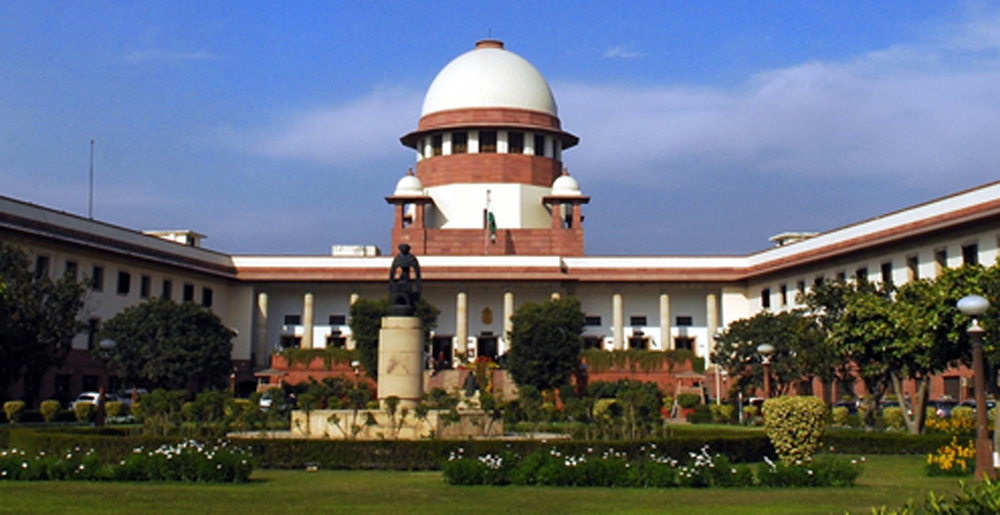The Centre on Tuesday told the Supreme Court that the Citizenship (Amendment) Act, 2019 (CAA), does not violate any fundamental right or affect the legal, democratic and secular rights of any Indian citizens.
The central government, in its 129-page affidavit in response to the pleas challenging the constitutional validity of the CAA, described the legislation as legal and asserted that there was no question of it violating constitutional morality which was not an “unruly horse”.
Seeking dismissal of the pleas, it said Indian secularism was “not irreligious”; rather, it takes cognisance of all religions and promotes comity and brotherhood.
The affidavit, filed by B.C. Joshi, director in the home ministry, said the CAA did not confer any arbitrary and unguided powers on the executive as the citizenship to the persecuted minorities of Pakistan, Afghanistan and Bangladesh would be granted in a manner as specified under the law governing grant of citizenship.
“The CAA does not impinge upon any existing right that may have existed prior to the enactment of the amendment and further, in no manner whatsoever, seeks to affect the legal, democratic or secular rights of any of the Indian citizens. The existing regime for obtaining citizenship of India by foreigners of any country is untouched by the CAA and remains the same,” it said.
The amended law seeks to grant citizenship to non-Muslim migrants belonging to Hindu, Sikh, Buddhist, Christian, Jain and Parsi communities who came to the country from Pakistan, Bangladesh and Afghanistan on or before December 31, 2014.
A bench headed by Chief Justice S.A. Bobde had on December 18 last year decided to examine the constitutional validity of the CAA but had refused to stay its operation.
It had sought response of the Centre on over 100 pleas, including those filed by the Indian Union Muslim League (IUML) and Congress leader Jairam Ramesh, challenging the CAA.
IUML has said that the CAA violates the fundamental right to equality and intends to grant citizenship to a section of illegal immigrants by making an exclusion on the basis of religion.
Regarding the petitioners’ contention that the amendment is unconstitutional as it applies to six minorities in three countries and there are other minorities there, the government said the Parliament is competent to earmark the religious minorities in the three countries and is not be bound by the declaration of minority status to any other community or sect by them.
It said the history depicts that persecuted minorities in the three countries — Pakistan, Afghanistan and Bangladesh — were left without any rights and the historical injustice is sought to be remedied by the amendment without taking away or whittling down the right of any other person.
On the petitioners’ reliance on Articles 15 (prohibition of discrimination on grounds of religion, race, caste, sex or place of birth) and 19 (protection of certain rights regarding freedom of speech) in their challenge to the CAA, the Centre said these rights were available only to Indians and not to illegal migrants or foreigners.
It said that Indians cannot claim rights under Articles 15 and 19 on behalf of illegal migrants or foreigners.
The Centre described as “erroneous” the petitioners’ assertion that exclusion of Ahamadis, Shias, Bahaiis, Hazras, Jews, Atheists or Baloch communities from the first tier of classification was arbitrary and discriminatory.
“Intra-religious persecutions or sectarian persecution or persecution due to non-recognition of particular sects to be within the fold of majority religion in the said countries, cannot be equated with the persecution of religious minorities admittedly following and practising a different and completely distinct religion than the majority religion in particular neighbouring countries,” the affidavit said.
It said the CAA results in not granting any kind of exemptions to Tibetan Buddhists from China and Tamil Hindus from Sri Lanka and the assertion that the law attempts to classify the persons belonging only to the Muslim community as “illegal migrants” had no basis.
The claim that the CAA was against any particular community was erroneous, unfounded and designedly mischievous, it said.
“The recognition of religious persecution in the particular neighbouring states, which have a specific state religion and long history of religious persecution of minorities, is actually a reinstatement of Indian ideals of secularism, equality and fraternity,” it added.
It said the CAA sought to protect the “freedom of religion”, which was an invaluable human right, of the classified communities who have been persecuted for expressing and practising their respective religions in the neighbouring countries.
It said the petitioners’ claim that requirement for registration of citizenship have been delegated to the executive were “erroneous” as the National Register of Citizens (NRC) does not create any embargo on any form of citizenship.
It claimed that the subject matter may not be within the scope of judicial review and may not be justiciable.
Several petitions have been filed challenging the CAA, including by RJD leader Manoj Jha, Trinamul Congress parliamentarian Mahua Moitra and AIMIM leader Asaduddin Owaisi.
Other petitioners include Muslim body Jamiat Ulama-i-Hind, All Assam Students’ Union (AASU), Peace Party, CPI, NGOs Rihai Manch and Citizens Against Hate and advocate M.L. Sharma. Law students have also approached the apex court challenging the act.











